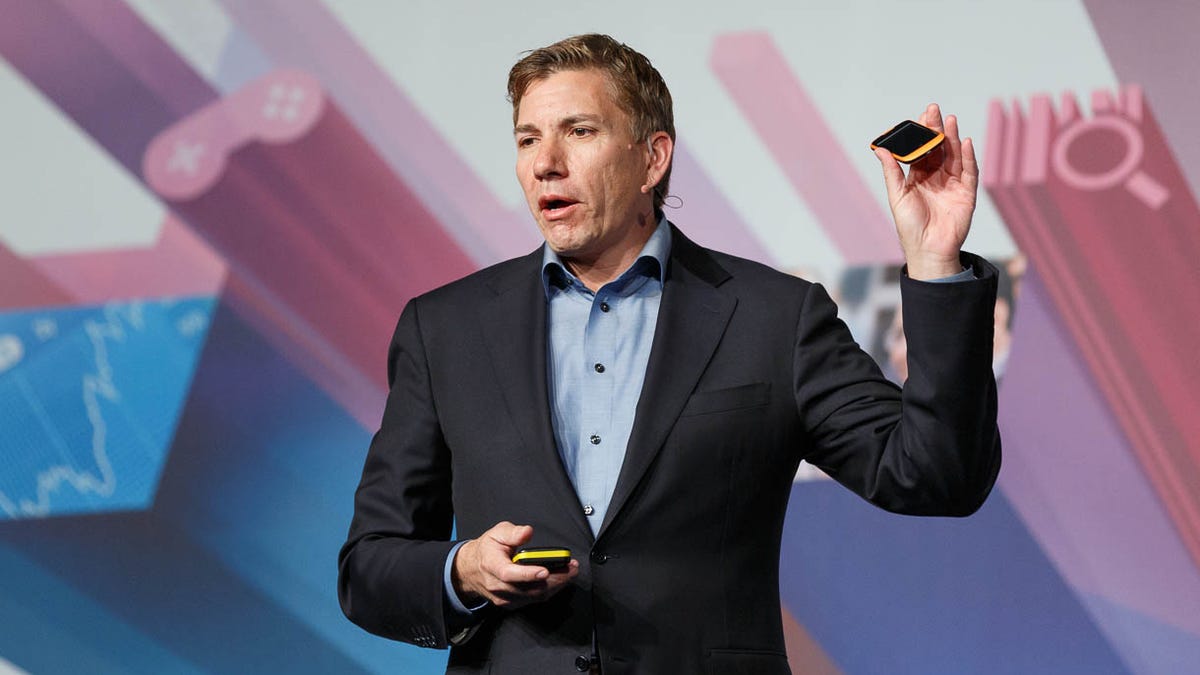Kovacs to leave Mozilla CEO post
Declaring that a new foundation is laid for a more competitive Firefox, Gary Kovacs is stepping down after two and a half years at the helm. Chair Mitchell Baker will increase her involvement.

Mozilla once again needs a new chief executive.
The developer of Firefox and defender of open-Web principles announced today that after two and a half years as CEO, Gary Kovacs will step down this year. He'll remain on the organization's board, and Mozilla is beginning a search for a new CEO immediately.
Mozilla Foundation Chair Mitchell Baker credited Kovacs for helping bring the nonprofit organization into the mobile era, releasing a version of Firefox for Android devices and debuting, if not quite yet shipping, the Firefox OS for smartphones. That mobile presence remains just a foothold, though, with vanishingly small Firefox usage in the real world.
Nevertheless, Kovacs said he'd accomplished the goals he had for the organization:
I am very proud of our accomplishments as a team. In our mission to empower the next 2 billion Web users, we've made great advances in desktop and mobile and in our ability to lead at the pace of the market. With this solid foundation and a strong team in place, this is the right time for me to announce the transition plan and a vote of confidence in the abilities of the leadership team.
Mozilla also announced several other executive changes:
- Baker is returning "to a deeper involvement in Mozilla's daily activities," Mozilla said, and "will also focus on ensuring that organizations and individual contributors have the tools they need to make meaningful contributions to unlock the potential of the Web."
Mozilla's management shakeup comes during a period of massive change in the browser industry.
Firefox once was the clear No. 2 alternative to Microsoft's Internet Explorer, carrying the torch of Web standards and better performance as IE stagnated. But Google's Chrome arrived in 2008 as Microsoft was revving its IE effort back up, and Firefox lost some of its cachet. The browser market has never moved with the same combination of developer velocity and massive scale as it has today.
When Kovacs took over, Firefox releases were months and months apart. Now, like Chrome, they come every six weeks, with updates happening mostly silently and in the background. It was a painful, drawn-out transition as Mozilla wrestled to convince its more conservative users that constant change is the way of the Web's future.
More recently, Google has split off Blink, its own browser-engine project, from the joint WebKit project with Apple, and Opera Software has scrapped its own browser engine in favor of Google's Blink. Mozilla has big plans of its own, with early work on the Rust programming language and Servo browser engine holding the potential for a drastically different software portfolio.
Mobile devices are where the biggest changes are taking place now. Apple's iOS burst onto the scene in 2007, bringing with it a version of the Safari browser that dominates the mobile market today. Google has released Chrome for Android, too, and Opera's mobile browsers also will follow the Blink path. On Windows RT, Microsoft's operating system for low-power tablet-PC hybrid devices, other browsers are effectively hobbled.
Thus, browser competition has never been fiercer. Yet Mozilla remains an active force. Its independence gives it a certain power in the Web standards world: It can introduce new standards or support others' ideas. It's treading water with something like a fifth of desktop browser usage, enough to sustain significant search-ad revenue from its partner, Google.
Firefox OS remains an unknown quantity. Partners such as Telefonica are positioning it as a low-end smartphone alternative, something cheaper and more powerful than a bottom-of-the-barrel Android phone but better than a feature phone. Next year, though, Mozilla plans to bring it to developed markets, too, where it'll go head-to-head with Android and Apple's iOS.
So Mozilla is indeed a different beast than when Kovacs took over. It's no longer the technophile's best friend it was five years ago, though, and whoever succeeds Kovacs will have to continue his fight for relevance.
Updated at 1:06 p.m. PT with further context.

